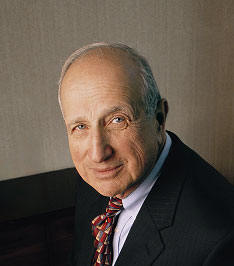|
Have a
question or comment?
|
 |
|
| |
Who is Bernard Gordon?
| Bernard Gordon received his B.S and M.S.
degrees in Electrical Engineering from the Massachusetts
Institute of Technology in 1949. Considered the “father of
analog to digital conversion” for his inventions and
contributions to signal translation, medical tomography and
other high-precision instrumentation, he has more than 200
patents worldwide. He founded Analogic Corporation and
recently retired as Chairman of the Board. Prior to Analogic,
he was the President and co-founder of Epsco, Incorporated.
In 1986, he received the National Medal of Technology from
President Reagan, and in 1991, he was elected a member of
the National Academy of Engineering and has been the
recipient of several honorary engineering doctoral degrees.
He is the Chairman of Lahey Clinic and a Trustee of Tufts
University. |
 |
| The definitions of Science,
Engineering and Technology from
http://en.wikipedia.org/wiki/Technologies#Usage.
Generally, the following distinctions can be made:
-
Science is the formal process of
investigating natural phenomena. It produces information
and knowledge about the world.
-
Engineering is the goal-oriented process
of designing and building tools and systems to exploit
natural phenomena for a practical human means.
Engineers work within the constraints of natural
laws and societal needs to create technology.
-
Technology is the consequence of these
two processes and societal requests. Most commonly, the
term technology is used as the name of all engineering
products.
-
Mathematics is the language to manage a
design and account for the patterns in nature.
|
|
Activities:
-
Draw a picture of an
engineer
-
Interview an Engineer
|
![]()